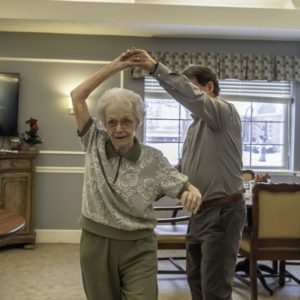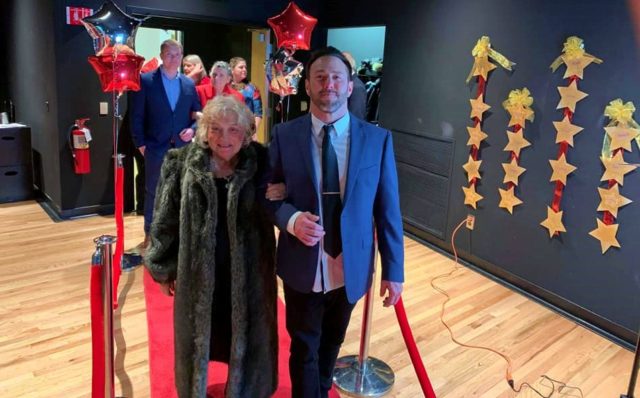Music therapy is used in all types of situations to help people process challenges and deal with mental, emotional, and even physical difficulties. All you have to do is listen to your favorite song or hymn to know that music is powerful. It can instantly make you feel better or transport you to a memory or feeling with just a few bars or lyrics.
When your loved one has dementia there are so many things that are hard for them to recall. Some days are better than others and you find yourself thinking, "Is mom going to remember me this time?" or "Will dad know what I am talking about?" But one thing you can almost always be sure of is seeing their face light up when they hear a familiar song. The sparkle in their eye comes back, their smile lights up, and you see the person you know and love shine through. Music is magical that way! Music therapy is a key ingredient in combating different forms of dementia. There are a lot of studies being done to determine the science behind why it helps. Even without knowing the science, it's easy to see that music therapy help. Many memory care facilities have instituted programs that focus on music. This includes not just listening to music, but actively participating in singing and movement.
 Related: Spirit of Caring Documentary about the Tic-Toc Choir
Related: Spirit of Caring Documentary about the Tic-Toc Choir
The place we store musical memories in the brain is separate from traditional memory networks. This music memory part is one of the last parts to be affected by dementia. Also, listening to music activates many parts of our brain, not just the single area designated for music. Because of this, music can temporarily "unlock" memories when it stimulates parts of the brain that are affected by dementia. This is possible because we don't really lose memories, but rather we can lose access to memories. They are still in the brain somewhere, we just might not be able to recall them.
While listening to music some dementia patients experience better autobiographical and "involuntary memory" recall. This is because those memories reside in the same part of the brain that is being stimulated by the music. The music provides a sort of magical key for accessing the memories. Many patients also experience a temporary improvement in speech and word recall. The effects of this "unlocking" can even last for a short period of time after listening to music and/or singing. Music can also:
An added bonus to music therapy is the benefit of moving and exercise. As you know, it is virtually impossible to hear a catchy tune and remain perfectly still while the beat plays around you. Toe-tapping, head bobbing, or the occasional jig are very common. People in memory care need to stay physically active and healthy as much as possible. Music makes us feel good so we are motivated to move to the groove.  Can music help your loved one with dementia? It's certainly worth a try as you experience a favorite song or hymn together while tapping your toes and smiling.
Can music help your loved one with dementia? It's certainly worth a try as you experience a favorite song or hymn together while tapping your toes and smiling.
If you or someone you love is experiencing memory loss issues we'd love to talk with you about our program. Vibrant Life has four locations throughout Michigan with care ranging from assisted living to memory care services. Music therapy is central to the culture and well-being of our staff and our residents. Our Tic-Toc Choir has a music video called "Don't Define Me, Just Remind Me" which launched a world premiere in December 2019. You can check it out here.  To learn more please call us at the nearest facility or fill out a contact form.
To learn more please call us at the nearest facility or fill out a contact form.
When you read our reviews, you'll hear a lot about the quality of our care and the warm personalities of our long-time staff.
People are often surprised to learn that we're also one of the most affordable senior living options in Lower Michigan.
Visit a community near you to learn about our monthly offers and everyday savings for veterans!
Schedule Visit